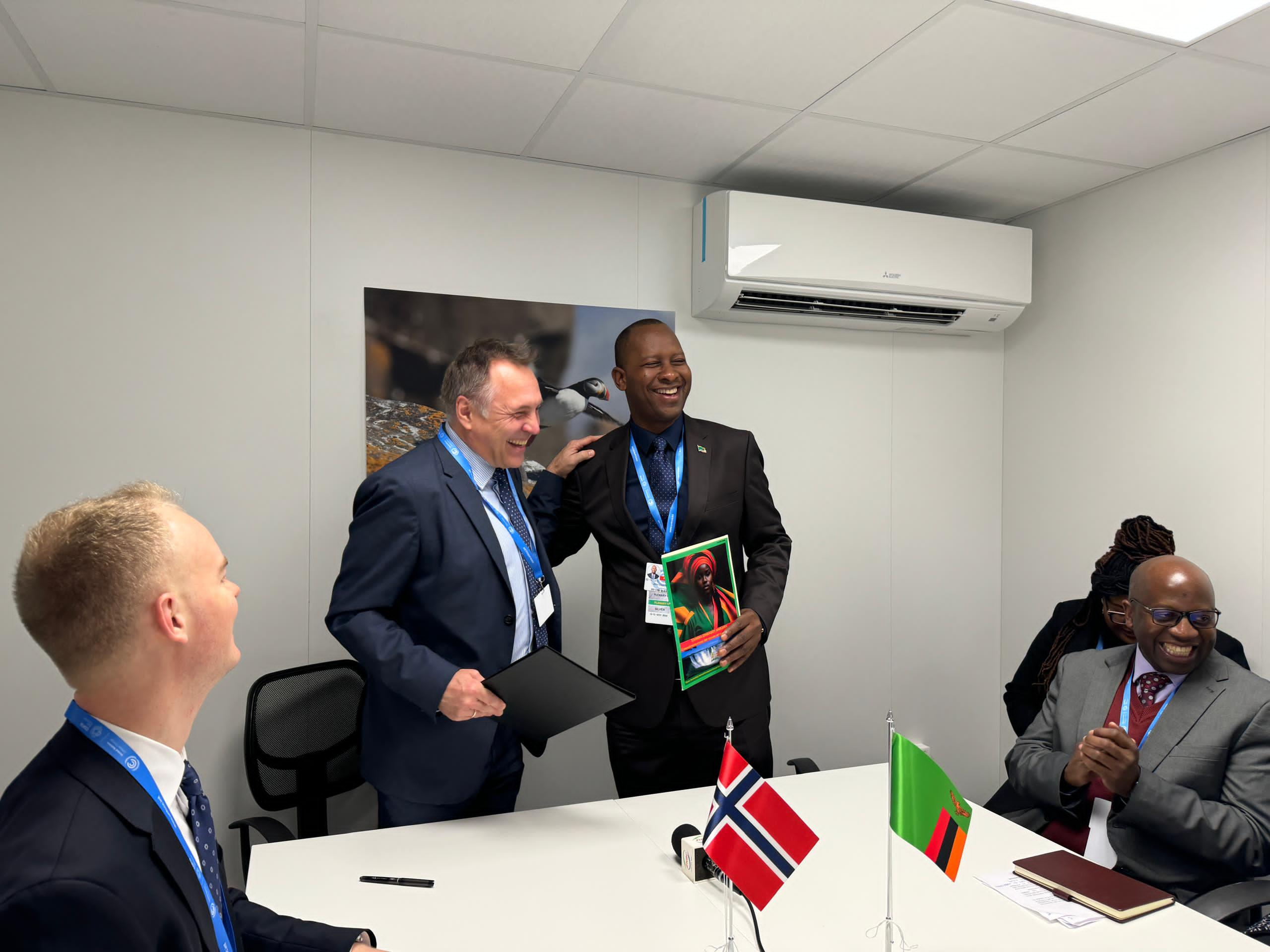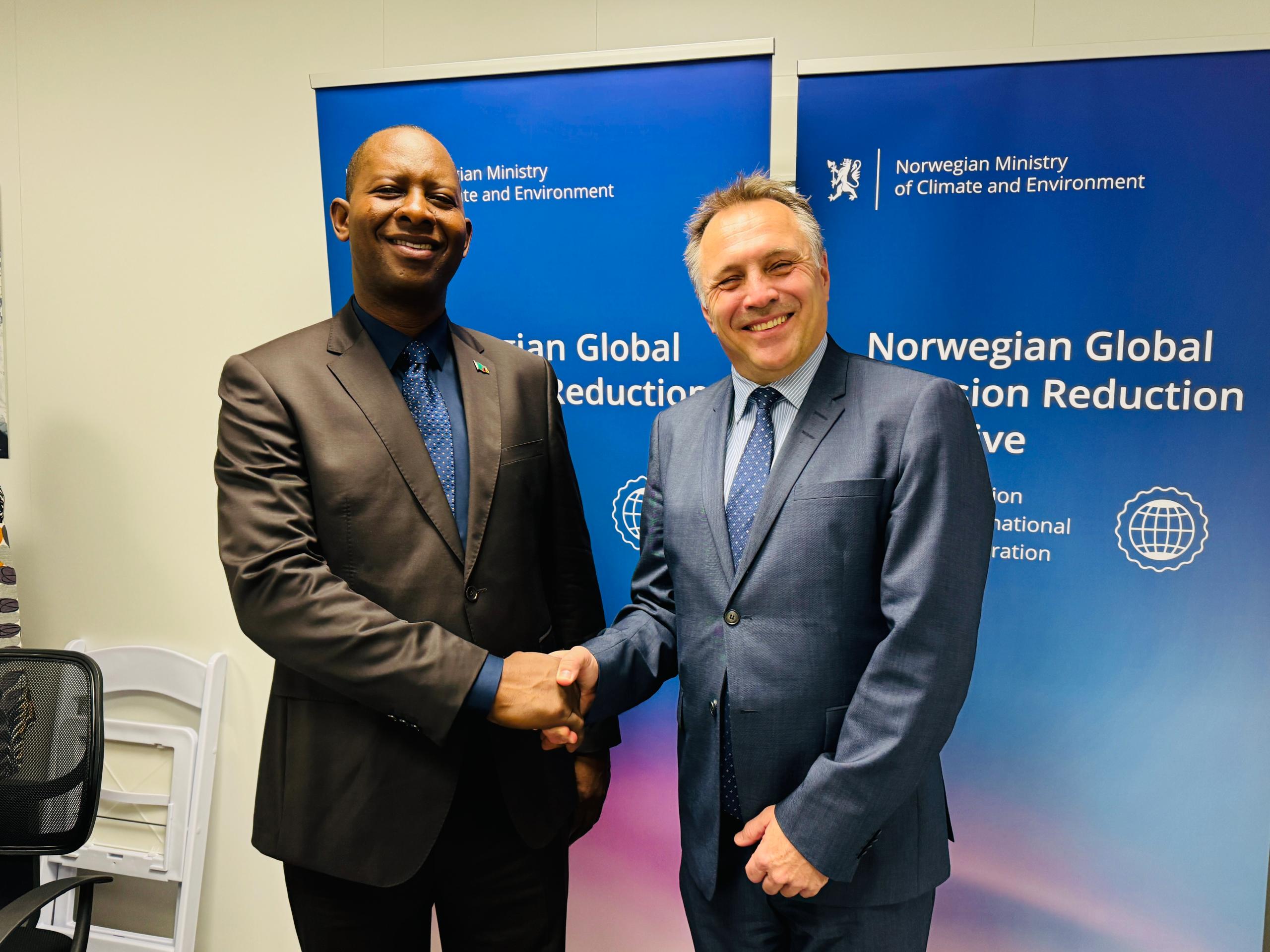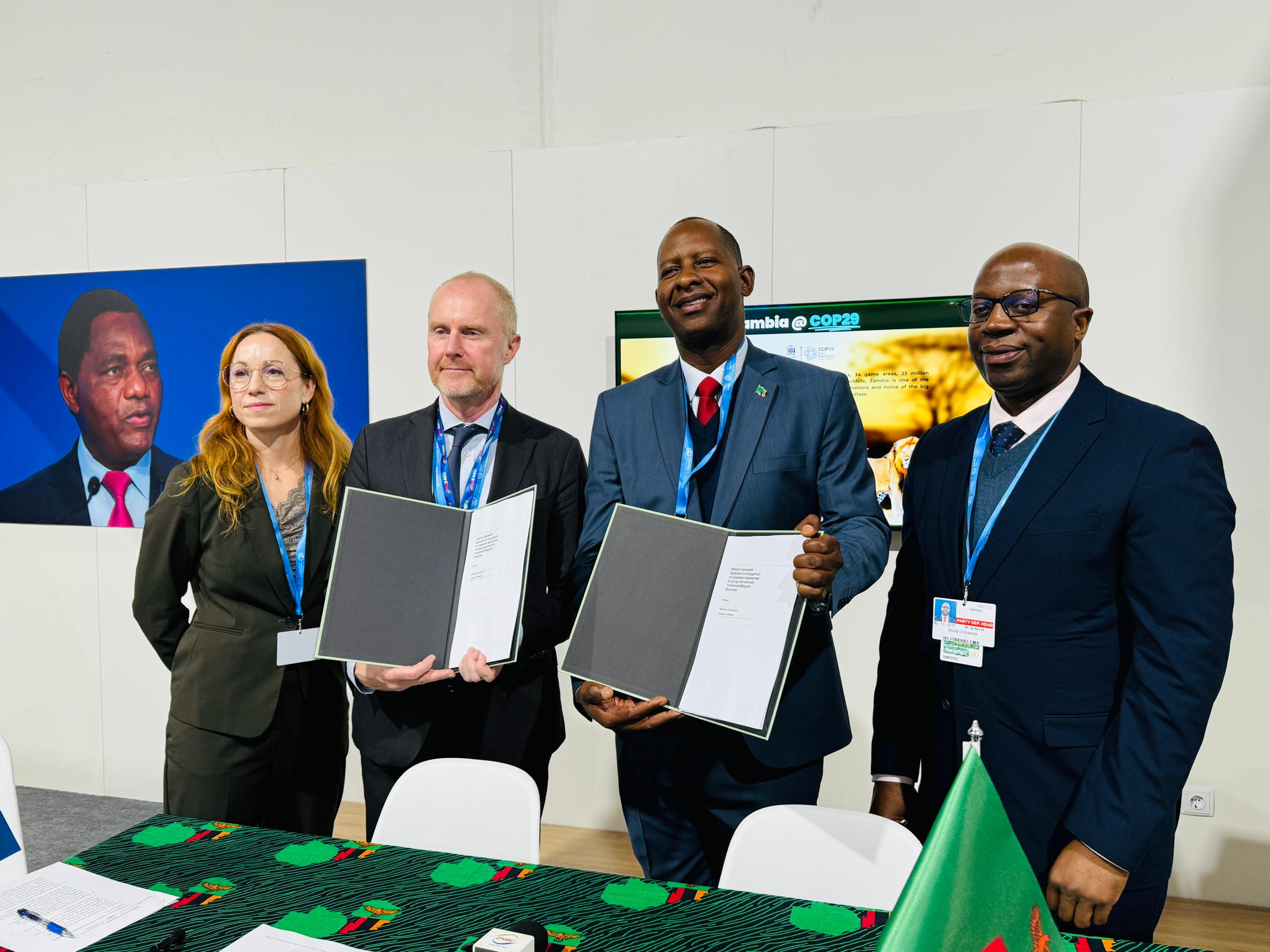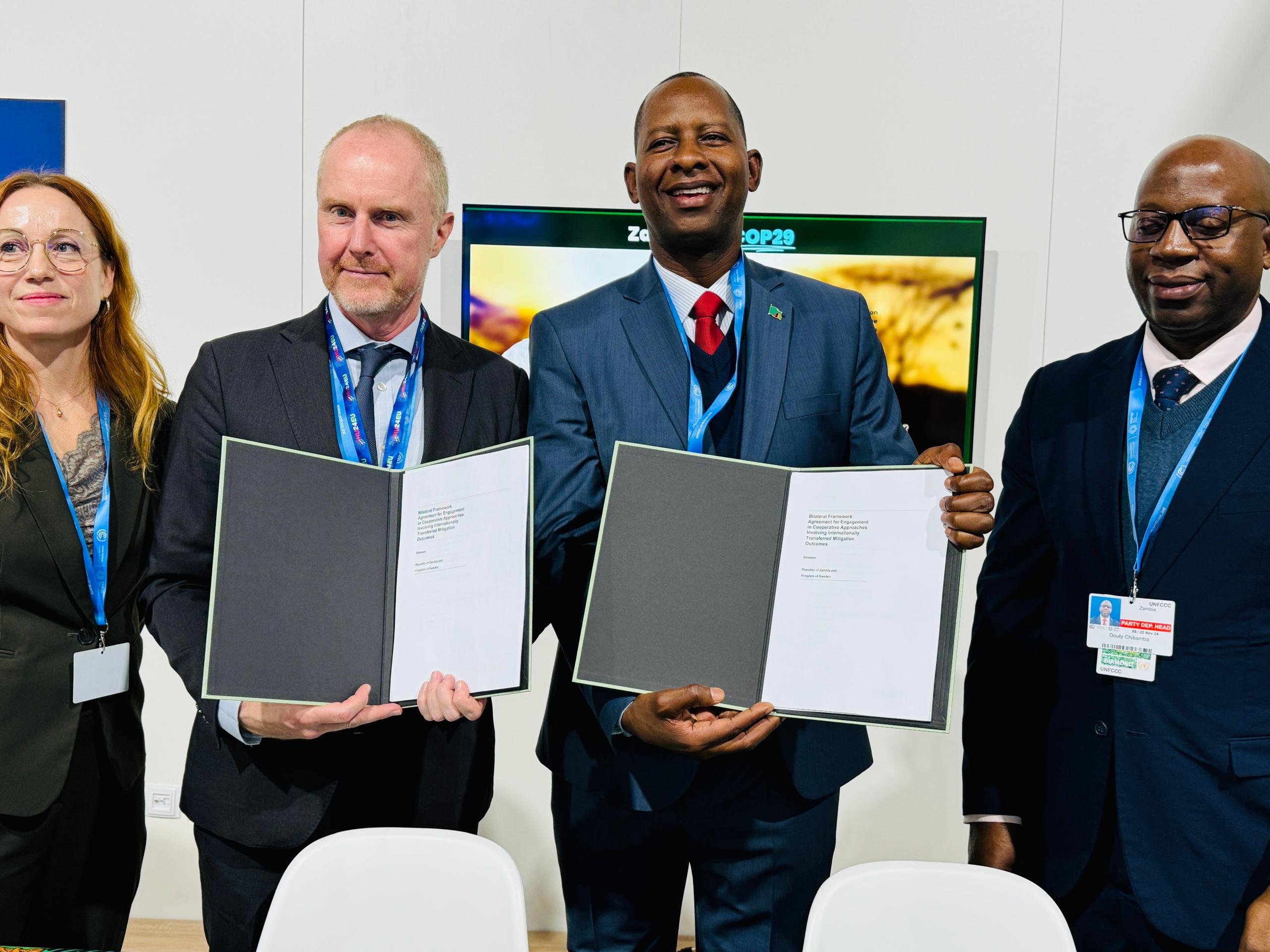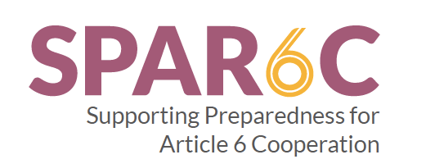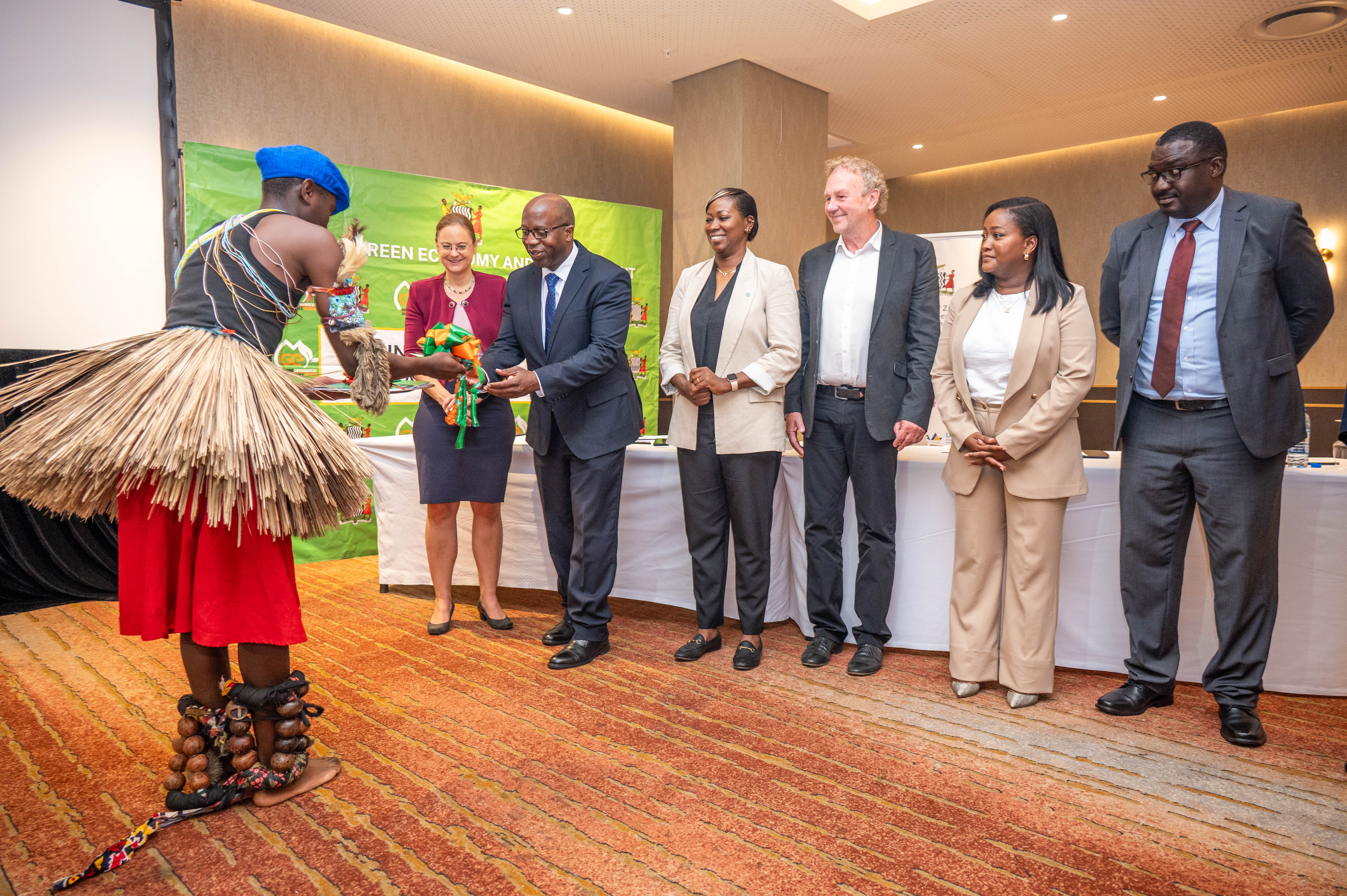Achieving a critical milestone towards implementation of the Paris Agreement and continued action to address climate change, Zambia’s Ministry of Green Economy and Environment (MGEE) has signed two Bilateral Agreements – one with Sweden and one with Norway – to underpin the country’s future international cooperation on Article 6 carbon markets. The Bilateral Agreements were signed today at COP29 in Baku with the assistance of the Supporting Preparedness for Article 6 Cooperation (SPAR6C) program, which is funded by the German government through its International Climate Initiative.
As these countries continue to strive to meet their targets under Article 6, the Bilateral Agreements will allow Zambia to work with Sweden and Norway to identify and select projects which are in need of carbon finance for implementation. According to Zambia’s Carbon Market Framework (CMF), Article 6 activities must be environmentally sustainable, promote sustainable development and enhance climate ambition. The CMF that is linked to the new upcoming Climate Bill stipulates that all Article 6 projects must undergo a strict additionality test and demonstrate their contribution to the international sustainable development goals.
Key components of the Bilateral Agreements signed this week include:
- Article 6 Cooperation: The agreements provide a framework for bilateral cooperation under Article 6 of the Paris Agreement and will allow for countries to trade carbon credits, while providing economic incentives such as carbon financing for projects.
- Sustainable Development: The Article 6 activities selected under this agreement aim to enhance economic growth while reducing greenhouse gas emissions and considering inclusive sustainable development.
- Capacity Building: The agreement will facilitate the provision of comprehensive technical assistance to the Ministry of Green Economy and Environment and carbon project developers and other relevant stakeholders in the country.
Zambia Signs its First Bilateral Agreement
On Saturday 16th November 2024, Zambia and Norway signed a Bilateral Agreement for Article 6 Cooperative Approaches. The event was graced by Ministers and Senior dignitaries such as the Norwegian Minister of Climate and Environment, Zambia’s Minister of Green Economy and Environment, and representatives of the German Federal Ministry of Economic Affairs and Climate Action. Supporting intergovernmental agencies were also present as they joined in a momentous occasion that signified cooperation towards climate action, emission reduction and achieving global targets.
Mr. Tore Onshuus Sandvik, Norwegian Minister of Climate and Environment, who signed on behalf of the Government of Norway said “Norway believes cooperation under Article 6 can provide much needed finance for green investments in developing countries. Today, our countries are taking a major leap forward, paving the way for green investments in Zambia and a contribution to global mitigation ambitions.”
Honourable Mike E. Mposha, Minister of Green Economy and Environment said, “Today’s event is as a culmination of our respective preparations and efforts to ensure that we reach this milestone agreement”.
Zambia Signs its Second Bilateral Agreement at COP29
On Tuesday 19 November, 2024 Zambia signed its second Bilateral Agreement with Sweden. The signing of the Bilateral Agreement comes after several months of engagement between the two parties, including the signing of a Memorandum of Understanding (MoU) with Sweden, represented by the Swedish Energy Agency, one of Sweden’s key expert government agencies which promotes energy efficiency measures and investments in renewable energy technologies and is mandated to implement climate cooperation under Article 6 of the Paris Agreement.
This agreement holds particular significance as Zambia seeks sustainable energy solutions to address its pressing energy needs. By collaborating with Sweden, Zambia aims to accelerate its transition to cleaner, more reliable energy sources—a key component of the country’s economic growth and environmental challenges.
Ms. Caroline Asserup, Acting Director General of the Swedish Energy Agency who signed on behalf of the government of Sweden said “This bilateral cooperation agreement is an important step towards establishing concrete climate projects that reduce greenhouse gas emissions, contribute to sustainable development and help raise climate ambition in both Sweden and Zambia. We are pleased to further strengthen the cooperation between our two countries.”
“Our government is serious about participating in international carbon markets as an important avenue to achieve our nationally determined contributions, generate new carbon finance revenue streams, which will increase the country’s mitigation ambition and contribute to the sustainable development of our nation.” said the Minister of Green Economy and Environment, Honourable Mike Mposha, MP
Next Steps for Zambia
For Zambia, signing the Bilateral Agreements represents yet another positive step towards its climate ambition. Not only will the agreements support the country to meet their NDC targets but also enhance carbon market project developers’ confidence and reinforce Zambia’s commitment to mitigating global warming.
“We are delighted to see the coming together of buyers and sellers in this new carbon market. Cooperative Approaches under Article 6 start with cooperations. This is evidenced here with these signings – GGGI is delighted to have been able to bring the parties together, working across our different programs” said Mrs. Fenella Aouane, Global Green Growth Institute (GGGI)
“The signing of the two agreements with Sweden and Norway underlines Zambia’s successful efforts to participate in this important new source of funding under the Paris Agreement for climate change mitigation and further socio-economic, environmental-friendly development of the country. But this comes not only as an opportunity, it is also a challenge. High-quality Article 6 activities must now be developed and financed.” said Joachim Schnurr (GFA), the national team leader of the SPAR6C program.
This event was supported by the Supporting Preparedness for Article 6 Cooperation (SPAR6C), led by the Global Green Growth Institute (GGGI) with GFA Consulting Group and UNEP Copenhagen Climate Centre as the leading delivery partners in Zambia. SPAR6C aims to catalyze investment in greenhouse emissions reductions by supporting its implementation countries to enable transactions of Internationally Transferred Mitigation Outcomes (ITMOs) as allowed under Article 6 of the Paris Agreement.
